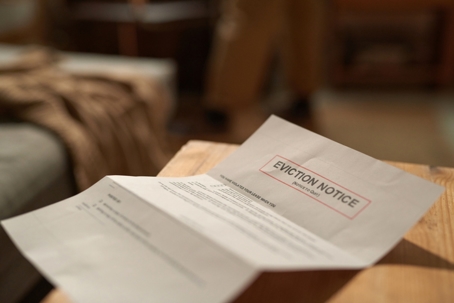With more than 54% of housing units in Los Angeles County occupied by renters, landlord-tenant disputes are a frequent and often complex reality in Southern California. Among these, eviction cases—legally termed unlawful detainer actions—are particularly common. However, due to intricate state and local laws, landlords must proceed with caution when initiating an eviction, or risk legal delays, financial loss, and in some cases, outright dismissal of their case.
As former Deputy City Attorney and seasoned trial attorney Paul P. Cheng, Esq., recently explained in a legal interview, understanding the legal framework for evictions in California—especially after the passage of recent laws and temporary emergency orders—is critical to protecting a landlord’s rights.
Understanding California’s Tenant Protection Act of 2019 (AB 1482)
Enacted on January 1, 2020, the California Tenant Protection Act (AB 1482) introduced significant new protections for residential tenants across the state. Key provisions include:
- Rent Caps: Annual rent increases are limited to 5% plus local inflation, not to exceed 10% total.
- Just Cause Eviction Requirement: After 12 months of continuous tenancy, landlords must show a legally recognized reason—just cause—to terminate the lease.
It's important to note that local ordinances, such as the Los Angeles Rent Stabilization Ordinance (RSO), may impose stricter rules. Landlords must comply with both state and local requirements when proceeding with an eviction.
Two Categories of Just Cause Evictions
California law separates just cause evictions into two broad categories:
1. At-Fault Evictions
These occur when the tenant breaches the lease agreement. Common grounds include:
- Nonpayment of rent – Requires a 3-Day Notice to Pay Rent or Quit
- Engaging in criminal activity on the premises
- Violating lease terms (e.g., unauthorized subletting or having pets)
- Causing substantial damage to the property
2. No-Fault Evictions
These occur when the tenant is not at fault, but the landlord has a legitimate reason to terminate the tenancy:
- Landlord or immediate family intends to occupy the unit
- Property is slated for demolition or major renovation
- A government order requires vacancy
Special Alert: 2025 Wildfire Eviction Moratorium
While Los Angeles County’s COVID-19 eviction moratorium officially expired on March 31, 2023, a new emergency order was enacted by the L.A. County Board of Supervisors on February 26, 2025, in response to the January wildfires.
This moratorium protects tenants who experienced at least a 10% loss of income due to wildfire-related impacts between February 1 and July 31, 2025. Affected tenants must submit a self-certification of financial hardship within seven days of rent due and repay any missed rent by July 31, 2025.
Landlords are advised to consult legal counsel to ensure compliance with this temporary ban before proceeding with any eviction.
Essential Notices in California Evictions
Proper notice is a critical component of any eviction. Common types include:
- 3-Day Notice to Pay Rent or Quit (Cal. Civ. Proc. Code § 1161(2))
- 3-Day Notice to Cure or Quit (Cal. Civ. Proc. Code § 1161(3))
- 3-Day Unconditional Quit Notice (Cal. Civ. Proc. Code § 1161(4))
Step-by-Step Overview of the Eviction Process
- Serve the Appropriate Notice – Ensure it's legally sufficient and properly delivered.
- File an Unlawful Detainer Lawsuit – If the tenant fails to comply with the notice.
- Tenant Response – Tenants have five days to file a legal answer.
- Court Hearing and Judgment – If the case proceeds to trial, the landlord must prove the legality of the eviction.
- Writ of Possession and Lockout – If the landlord prevails, the court issues an order for the sheriff to remove the tenant.
How an Attorney Can Help Landlords
Eviction law in California is highly procedural. Failure to follow exact legal steps—especially under AB 1482 or overlapping local rules—can invalidate an eviction entirely.
At the Law Offices of Paul Cheng, our litigation team offers comprehensive legal support for landlords, including:
- Reviewing and preparing proper eviction notices
- Filing unlawful detainer lawsuits and representing clients in court
- Responding to tenant defenses (e.g., COVID-related hardship or habitability claims)
- Ensuring compliance with state and local moratoriums and ordinances
With deep experience in landlord-tenant law and a results-driven approach, our team ensures landlords are not only legally protected, but also able to resolve disputes efficiently and effectively.
Contact Us
If you're a landlord facing challenges with a tenant or have questions about your legal rights under California law, don’t navigate the process alone. Call the Law Offices of Paul Cheng at (626) 356-8880 today to schedule a consultation. Let our experience and strategic approach serve as your strongest legal shield in protecting your property rights.

